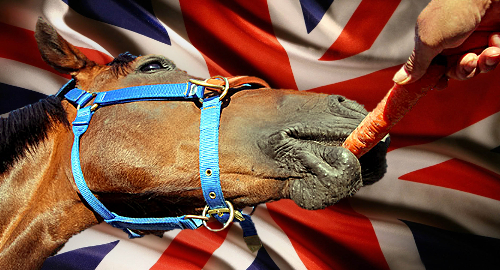 The UK government has confirmed that betting operators will be required to kick back 10% of their race betting revenue to the UK racing industry effective April 2017.
The UK government has confirmed that betting operators will be required to kick back 10% of their race betting revenue to the UK racing industry effective April 2017.
On Friday, Minister for Sports, Tourism and Heritage Tracey Crouch confirmed the new 10% rate will apply to all betting operators, be they on-course, off-course, retail, online, pool betting operators, betting exchanges or spread betting sites.
The new 10% rate of gross gambling yield above the first £500k bookies make from racing will replace the existing Horserace Betting Levy system, which featured protracted annual negotiations that made the Israeli-Palestinian schism look positively convivial.
As a result, the Levy Board will be dismantled early in 2018, while the UK Gambling Commission will be responsible for collecting the new fees. A newly established Racing Authority will be tasked with deciding how best to distribute the pound of flesh racing has cut from the bookies’ hides.
The 10% rate had been telegraphed as early as last October but bookies had been lobbying furiously to cut this rate by a point or two. The fee is expected to raise £90m per year for racing for the next seven years, compared to the £54.5m the Levy generated in 2015-16. The government will review the rate after seven years to reflect “any future changes to the market.”
British Horseracing Authority (BHA) boss Nick Rust was unsurprisingly giddy at Friday’s news, saying the new fee would “restore to racing a return from all betting on our sport at a fair and proportionate rate”.
The plan still requires the approval of the European Commission to ensure it doesn’t constitute improper state aid. Betting operators could also file an appeal with the European Court of Justice, although this could take years and won’t prevent the new scheme from taking effect in the interim.
William Hill spokesman Ciaran O’Brien referenced the state aid question, especially following “a decade of significant increases in media rights income from the betting industry and William Hill will input to the process as appropriate.”
Ladbrokes-Coral was similarly sour regarding the new rate, suggesting that “with cost escalation in the levy, shop pictures, streaming rights and advertising, the sport is in danger of pricing itself out of friends.”
IRISH RACING ALSO SEEKING LEVY HIKES
Across the Irish Sea, Horse Racing Ireland (HRI) is anticipating betting taxes fully funding Irish racing by the year 2020. HRI’s latest financial report shows off-course betting duty receipts of €50.7m while the sport received around €58m from the government.
HRI CEO Brian Kavanagh said there’d been “a significant change from two years ago when the gap between what the government was taking in from betting and then paying out was in the nature of €28m to €30m.” Kavanagh said HRI’s goal was for racing to be “fully funded” from betting by the end of the decade.
Not surprisingly, Kavanagh believes the current retail bookie levy of 1% of turnover and 15% of betting exchange profits were “low rates by international standards, and I would argue that extra funding can be achieved.”